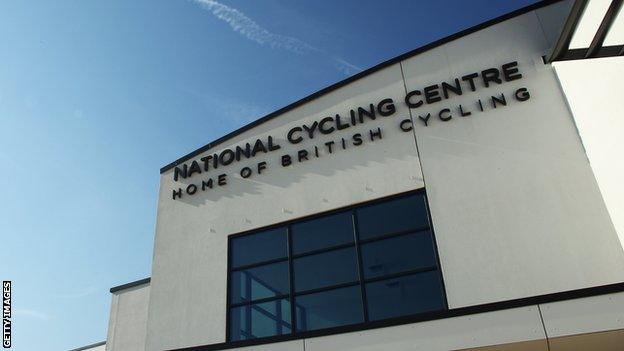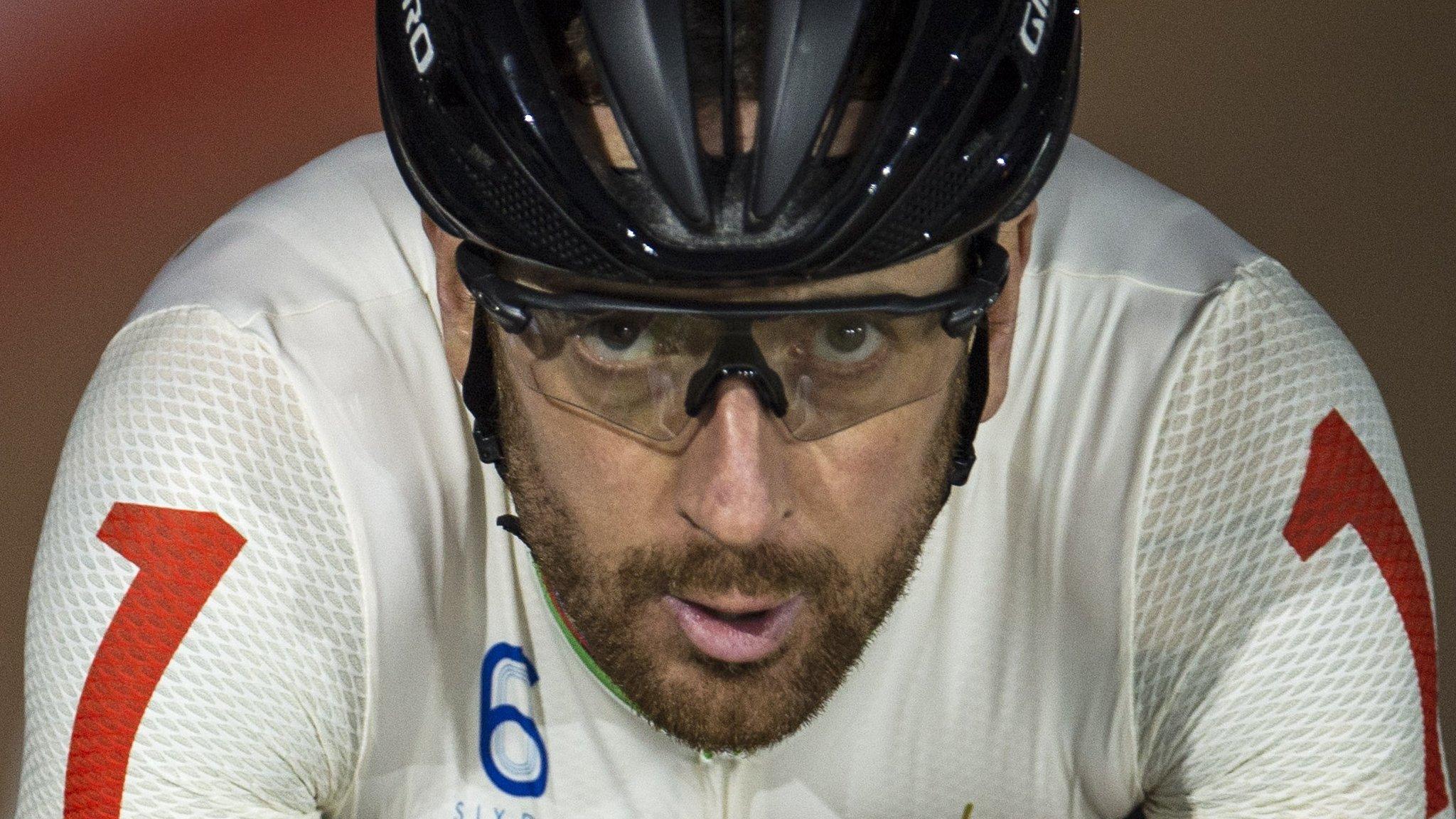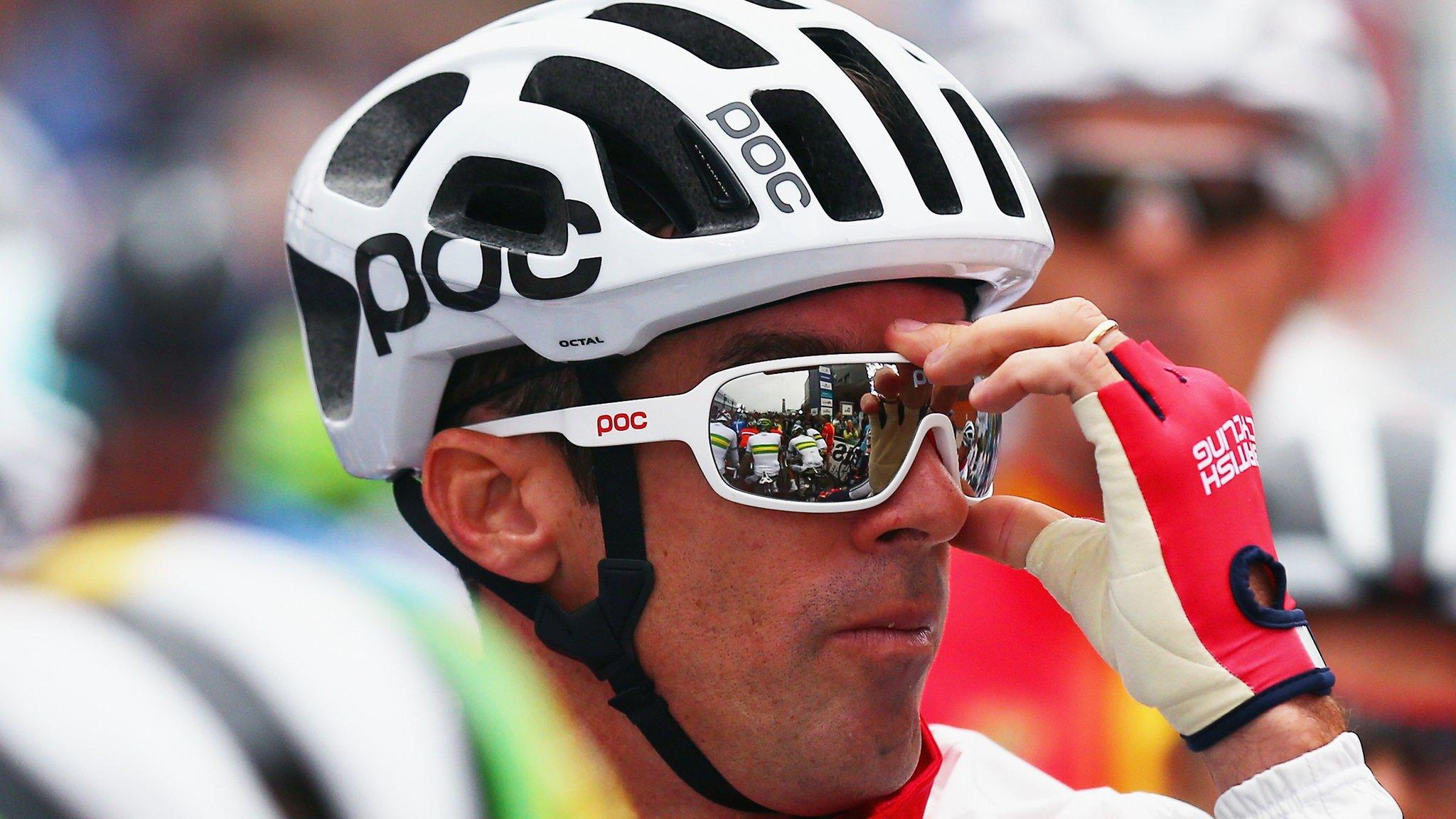British Cycling failures hindered jiffy-bag inquiry - UK Anti-Doping
- Published

No charges were brought over the 'mystery' medical package delivered for Sir Bradley Wiggins at the Criterium du Dauphine in 2011
UK Anti-Doping (Ukad) claimed its 'jiffy-bag' investigation had been "hindered" and may have even been "potentially compromised" by British Cycling's failure to report doping allegations sooner, the BBC can reveal.
In a confidential and highly critical letter dated 14 November 2017, and sent after Ukad halted its inquiry into a mystery 2011 medical delivery, British Cycling was told its medical storeroom at the National Velodrome had been "chaotic and disorganised".
The agency also pointed to "little if any evidence of supervision or executive oversight" of team doctors.
Ukad had refused to release letters it sent to both British Cycling and Team Sky, despite Freedom of Information requests from the BBC and other media organisations, saying it would leave it open to legal action and that it was not in the public interest.
But for the first time, the details can now be disclosed after BBC Sport obtained the correspondence.
Background
Watch: Brailsford's tense grilling on Team Sky
Ukad - which is publicly funded - spent 14 months looking into an allegation that a mystery medical delivery for former Team Sky star rider Sir Bradley Wiggins at a race in France in June 2011 contained a banned corticosteroid.
Former British Cycling chief medic Dr Richard Freeman, who administered the substance, along with Wiggins and Team Sky, always denied any wrongdoing, and claimed the package contained a legal decongestant.
However, a lack of documentation about the drug dispatched from the medical storeroom that Team Sky shared with British Cycling at their Manchester headquarters meant Ukad was then forced to bring its investigation to a close with no charges brought.
Freeman said he had lost his records when his laptop was stolen on holiday, and he then failed to talk to Ukad because of ill health.
Wiggins suggested he may sue Ukad, saying he and his family had been put through "a living hell".
September 2016: Drugs were for medical condition'
'Chaotic'
Ukad said its inquiry had been "hampered" by poor record-keeping and the cross-over between personnel at British Cycling and Team Sky, a view reinforced in the strongly worded letter its chief executive Nicole Sapstead sent to her counterpart at the governing body, Julie Harrington in November. The heads of funding agencies UK Sport and Sport England (Liz Nicholl and Jennie Price) were also copied in. Harrington had started in her role in May, 2017.
In it, Sapstead says: "We found no formal processes or procedures in place to record the purchase, use, or disposal of pharmaceutical products and medical supplies, ie a medical stock-taking system, except for invoices kept by the finance department.
"There was no process to record what products or supplies were stored by British Cycling at the velodrome or elsewhere, and what was checked in and out of the medical room on site.
"There were no records of pharmaceutical medical supply packages sent by British Cycling to teams competing at events at home or abroad.
"The medical room at the velodrome was chaotic and disorganised. There was no apparent filing system, and papers were just piled up in cupboards and filing cabinets.
"Electronic medical records were not kept... nor was there any back-up system. We found little if any evidence of supervision or executive oversight of the team doctors.
"There are considerable periods of time in which it is impossible to ascertain if (some) staff were operating as members of British Cycling or Team Sky."
'Hindered our investigation'
In the private correspondence, Ukad is also very critical of British Cycling's handling of the allegations, which were first revealed in the Daily Mail in October 2016.
"Despite being aware of allegations in relation to the 2011 package, British Cycling were slow to inform Ukad of these," it adds.
"In fact, contact on this matter was made at Ukad instigation. Contact by British Cycling with some members of staff at British Cycling prior to informing Ukad could have potentially compromised our investigation.
"Under the UK National Anti-Doping policy by which British Cycling is bound, there is an obligation on an NGB (national governing body) of a sport to report any suspicions or allegations of doping.
"Failure to inform Ukad at the time that individuals within British Cycling became aware of such suspicions or allegations meant that this story had already reached a number of individuals before Ukad was informed, and thus able to act. That only hindered our efforts.
"We would suggest that all relevant staff are reminded of their obligations."
In a statement, British Cycling said it "welcomed and accepted the recommendations made by Ukad in its letter sent to us on the conclusion of its investigation in November last year".
It added: "British Cycling has made a number of significant changes to the provision of medical services to the Great Britain cycling team. All of the recommendations of a review commissioned in April 2017 have been implemented. This review was in response to initial findings by Ukad given to the Culture, Media and Sport Select Committee in March 2017.
"We continue to partner and support Ukad in the important work it conducts to keep sport clean."
British Cycling, which is due to receive £43m of public funding for the current Olympic cycle and is trying to recover from a series of scandals, published details of the correspondence, external on Friday evening after the BBC contacted the organisation for a comment, releasing a statement on its website just 10 minutes after providing a response to the BBC.
- Published1 March 2017

- Published15 November 2017

- Published18 November 2017
